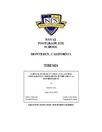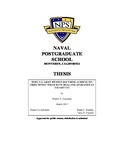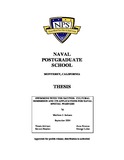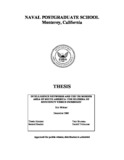Virtual HUMINT: conducting human intelligence operations in the virtual environment
| dc.contributor.advisor | Halladay, Carolyn | |
| dc.contributor.author | Koren, Dori | |
| dc.date | September 2015 | |
| dc.date.accessioned | 2017-11-30T23:19:58Z | |
| dc.date.available | 2017-11-30T23:19:58Z | |
| dc.date.issued | 2015-09 | |
| dc.identifier.uri | https://hdl.handle.net/10945/56397 | |
| dc.description.abstract | The present research focuses on the concept of virtual HUMINT and the potential for recruiting human sources exclusively through virtual means. Based on the systematic review of 153 sources and the meta-interpretation of 23 studies, this thesis highlights the value for augmenting traditional HUMINT operations with virtual ones. In particular, the research shows that online social networking, gaming, and dating can serve as effective mechanisms for the virtual recruitment of human sources. Furthermore, an evaluation of Internet activity worldwide shows that most of the countries and territories that are of interest for intelligence collectors can be accessed through these environments--making virtual HUMINT not only a possibility but also a relevant option. The research also indicates that virtual HUMINT offers a particular value in reducing risk. Similar to the way drones have enhanced U.S. air operations by safely extending the military’s reach, virtual intelligence officers could recruit sources from beyond the battlefield. Virtual HUMINT may also help intelligence agencies gain better access to denied areas or places where it is especially difficult to insert personnel. Ultimately, the rapid growth of the Internet and the continuous migration from the physical to the virtual world will soon make virtual HUMINT invaluable. | en_US |
| dc.description.uri | http://archive.org/details/virtualhumintcon1094556397 | |
| dc.publisher | Monterey, California. Naval Postgraduate School | en_US |
| dc.rights | Copyright is reserved by the copyright owner. | en_US |
| dc.title | Virtual HUMINT: conducting human intelligence operations in the virtual environment | en_US |
| dc.type | Thesis | en_US |
| dc.contributor.secondreader | Norton, Anastasia | |
| dc.contributor.department | National Security Affairs (NSA) | en_US |
| dc.subject.author | virtual HUMINT | en_US |
| dc.subject.author | HUMINT | en_US |
| dc.subject.author | cyber espionage | en_US |
| dc.subject.author | digital espionage | en_US |
| dc.subject.author | source development | en_US |
| dc.subject.author | human source | en_US |
| dc.subject.author | criminal intelligence | en_US |
| dc.subject.author | human intelligence | en_US |
| dc.subject.author | denied areas | en_US |
| dc.subject.author | intelligence | en_US |
| dc.subject.author | social networking | en_US |
| dc.subject.author | online dating | en_US |
| dc.subject.author | massively multiplayer online | en_US |
| dc.subject.author | online games | en_US |
| dc.subject.author | cyberspace | en_US |
| dc.subject.author | agent acquisition cycle | en_US |
| dc.subject.author | access and placement | en_US |
| dc.subject.author | cyber | en_US |
| dc.subject.author | intelligence community | en_US |
| dc.subject.author | virtual recruitment | en_US |
| dc.subject.author | case officer | en_US |
| dc.description.service | Detective Sergeant, Las Vegas Metropolitan Police Department, Counter Terrorism Unit | en_US |
| etd.thesisdegree.name | Master of Arts in Security Studies (Homeland Security and Defense) | en_US |
| etd.thesisdegree.level | Master | en_US |
| etd.thesisdegree.discipline | Security Studies (Homeland Security and Defense) | en_US |
| etd.thesisdegree.grantor | Naval Postgraduate School | en_US |
| dc.description.distributionstatement | Approved for public release; distribution is unlimited. |
Files in this item
This item appears in the following Collection(s)
-
1. Thesis and Dissertation Collection, all items
Publicly releasable NPS Theses, Dissertations, MBA Professional Reports, Joint Applied Projects, Systems Engineering Project Reports and other NPS degree-earning written works.





